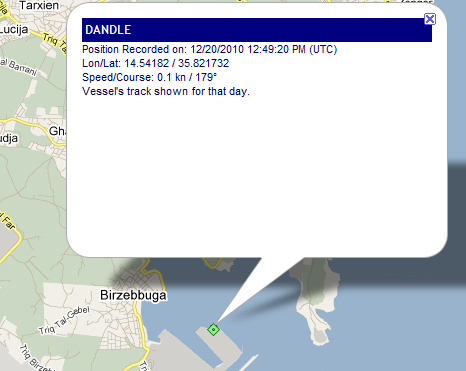Dandle, to most of you, is a verb meaning to dance a small child up and down on one’s knee. Others, particularly regular readers of this blog, will recognize it as the surpassingly odd name of an Islamic Republic of Iran Shipping Lines (“IRISL”) cargo ship formerly known as Twelfth Ocean, which was rechristened the Dandle by the Iranians after the vessel was placed by the Office of Foreign Asset Controls (“OFAC”) on its Specially Designated Nationals and Blocked Persons List (“SDN List”).
The news media was all over yesterday’s announcement by OFAC of new sanctions against various entities in Iran, but it was baffled by, and largely ignored, a General License issued at the same time yesterday by OFAC with respect to the Dandle and its equally oddly named sister ship, the Decritive. The General License states:
effective December 21, 2010, all transactions are authorized related to the arrest, detention, and judicial sale of the MV Dandle (a.k.a. Twelfth Ocean, IMO No. 9209348), and the MV Decretive (a.k.a. Sixth Ocean, IMO No. 9349679), which were identified as blocked property on September 10,2008, under the names Twelfth Ocean and Sixth Ocean, respectively (the “Vessels”), pursuant to Executive Order 13382 of June 28,2005 (70 FR 38567, July 1,2005) (“E.O. 13382”). Such transactions include, but are not limited to, bidding on the purchase of the vessels; paying deposits; providing financing, insurance, or funding in connection with the purchase; and, in furtherance of the arrest, detention, and judicial sale of the Vessels, providing vessel management services; providing port agency services; purchasing of bunkers; repairing or modifying the Vessels for commercial use; providing crewing; and hiring surveyors to inspect the vessels.
With a little snooping around I learned from a Financial Times article (free registration required) that five IRISL ships have been arrested by creditors over loan disputes in Singapore, Hong Kong and Malta. And according to this screen grab from tracking site marinetraffic.com, the Dandle appears to be sitting in Malta at the moment. I can’t locate the Decretive.

Without this General License, which expires on January 31, 2012, no U.S. person could participate in any judicial sale by the creditors of the arrested vessel due its being on the SDN list and blocked as a result. The General License also indicates that after the judicial sale the new owner may show evidence of its ownership of the vessel to have it unblocked. Why there is no license permitting participation of U.S. persons in the judicial sales of the other three vessels is, at least to me, completely unclear.

 Posted by
Posted by  Category:
Category: 

 Nigeria has
Nigeria has  The recently-passed
The recently-passed  This blog has reported
This blog has reported  Back in April, I
Back in April, I 

